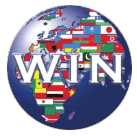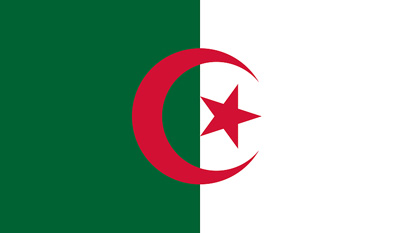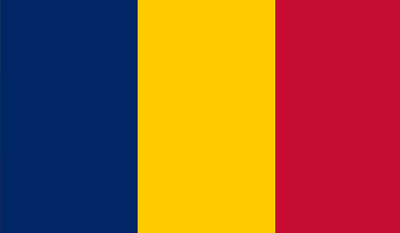Day 23
Algeria
Despite a lull in the anti-government protests through restrictions on freedom of speech, the Algerian government continued its crackdown on dissent. They have increasingly used charges related to terrorism and restricted activities of civil society organizations. Despite the numerous domestic challenges, all sides of the opposition lack perspective and seem unable to provide an alternative to the current administration.
Pray for stability even during political challenges in Algeria. Heavenly Father, grant them wisdom and knowledge to be their stability and the strength of salvation and fear of the Lord be their treasure (The Holy Bible, Isaiah 33:6).
Pray that God will give you stability and prosperity, for He makes your future secure (The Holy Bible, Psalms 16:5).
President of the Sahrawi Arab Democratic Republic is Incumbent Brahim Ghali since 12 July 2016. Western Sahara is one of the most sparsely populated territories in the world, mainly consisting of desert flatlands. It has been a disputed territory since 1975. Morocco controls 80% of the land, while the remaining 20% is controlled by the Sahrawi Arab Democratic Republic. Presently, camps run by the Cuban-backed Polisario Front exist in southern Algeria, where thousands of indigenous Sahrawi people are sequestered and treated inhumanely. Public beatings are common and young children are taken from their families and sent to Cuba for re-education. It is a country in tremendous need of the Gospel. It is estimated that there are only about 10 Christian workers in the whole country, making it so about 80% of its population have never heard the Gospel. It is a closed country, so being a “missionary” there is not officially allowed. Christian workers must be creative in why they go and how they minister there. Its Christian prospect is considered bleak and the nation of Western Sahara remains a disputed territory.
Day 23
Chad
Bless Chadians, in the glorious Name of Jesus, as they will vote on December 17 in a referendum to approve a new constitution for the country in a turbulent political transition process.
Bless Chad’s constitutional referendum to change the governance system to be a unitary, non-federal state with increased decentralization and territorial autonomy.
Bless Chad to eliminate the robbing bandits and Boko Haram terrorists from the country and ensure safety and security for the people.
Pray for the persecuted Christian Believers to take a bold stand to defend the Gospel and work towards leading others to Christ (The Bible, Hebrews 4:14)
Mahamat Idriss Déby is the present president and Incumbent Saleh Kebzabo is the current Prime Minister of Chad since 12 October 2022. The government is unitary state with Presidential system. Chad is landlocked in the middle of the continent and is bordered by six neighboring countries. Chad’s population is unevenly distributed in large part due to the variations in climate and physical geography throughout the country. With its fresh water, Lake Chad draws most of Chad’s over 17 million people to the southwest. The dry Saharan climate in the north is the least populated region of Chad. More than half of the population is Muslim, with one-third Christian, and the remainder follow indigenous religious beliefs or have no religion. Most northerners practice Islam, and most southerners practice Christianity or indigenous religions.





